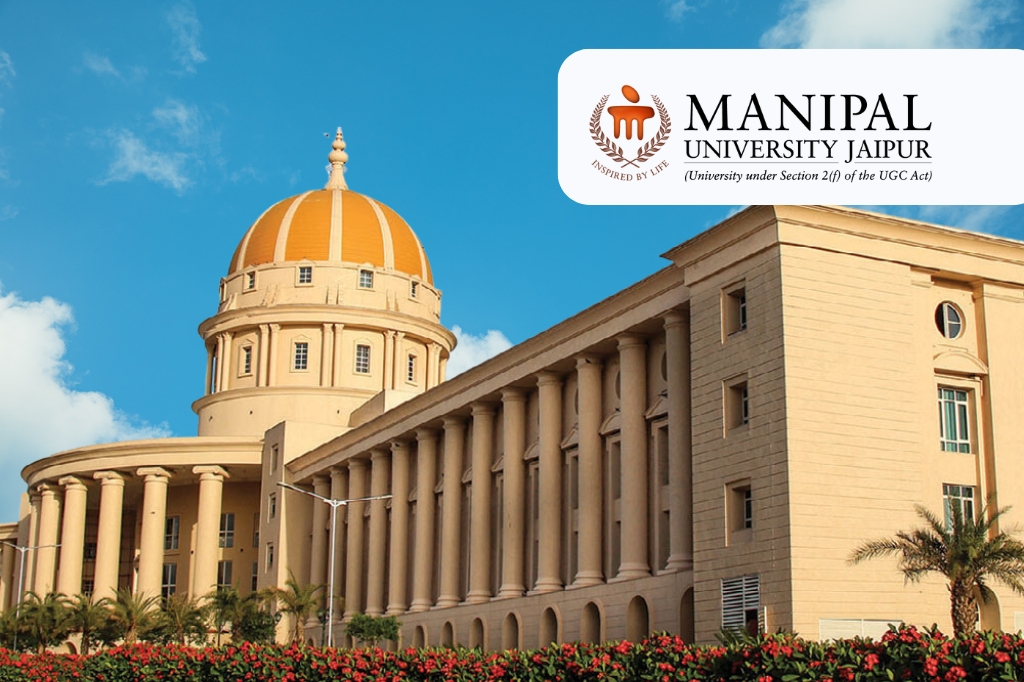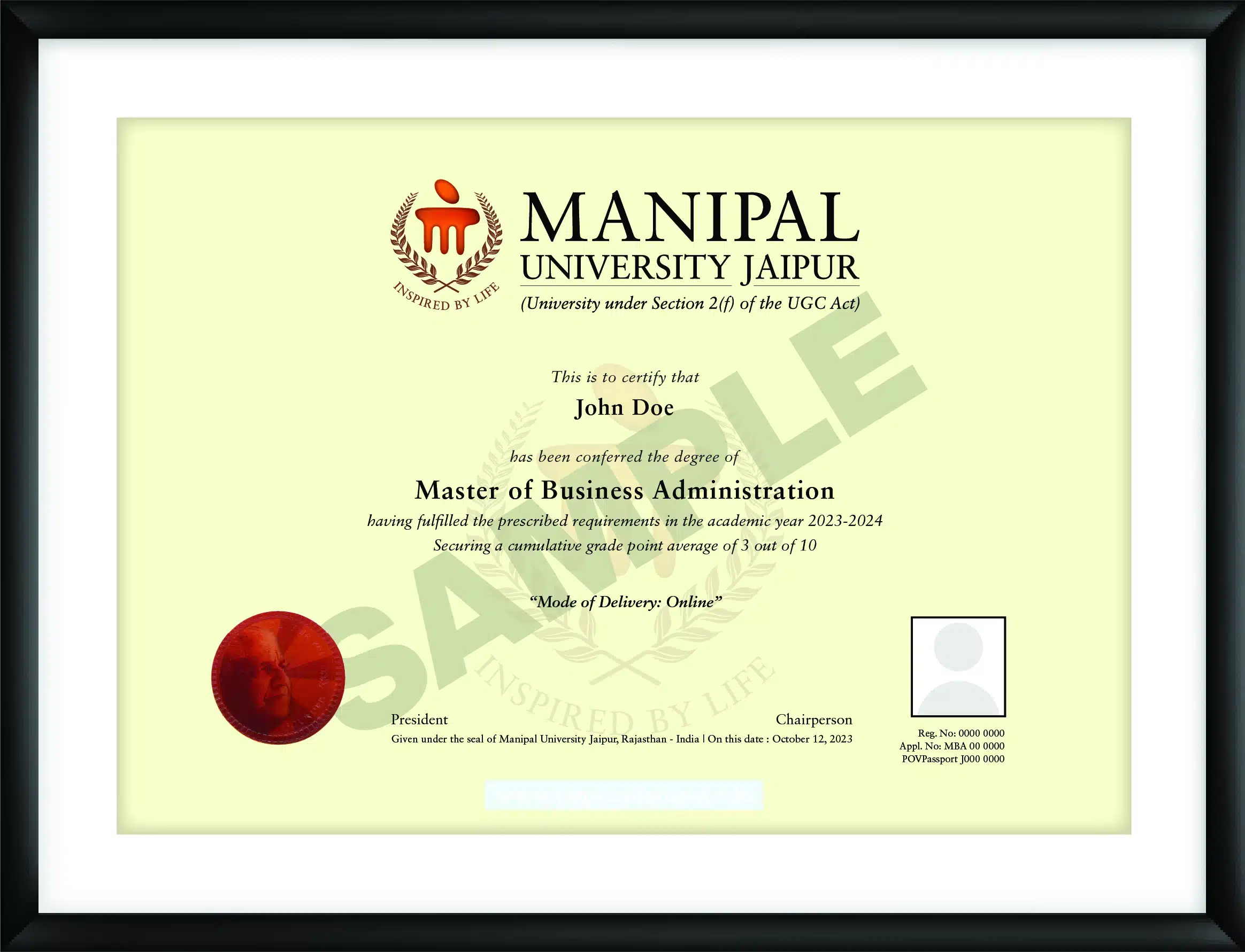Increased earning potential:
Get into leadership positions with lucrative salary packages and become an effective leader in top organizations across sectors.


This online Master of Business Administration (MBA) in Supply Chain Management from Manipal University Jaipur (MUJ) equips you with in-depth domain knowledge in key supply chain processes like procure...
Course By - Online Manipal University
Course Mode - Online
Duration
Total 4 Semesters
Commitment
Recommended hours
Model
Content
Eligibility
Recognized Board / University
Increased earning potential:
Get into leadership positions with lucrative salary packages and become an effective leader in top organizations across sectors.
Gain job-ready business skills:
Build essential business skills like strategic thinking, leadership, problem-solving, and cultural competence. Learn production & operations management, strategic management, business policy, managerial economics, international business management, and other key subjects from expert faculty, to prepare yourselves for key managerial roles across sectors .
Global networking & access to alumni:
Network with a diverse student & alumni community and industry leaders to learn about market challenges and trends from around the world. Become a part of Manipal University Jaipur’s prestigious alumni network.
10 career-focused electives:
Choose from 10 industry-oriented electives like Analytics & Data Science, Supply Chain Management, International Business and IT & FinTech, based on your competencies and career aspirations.
Management Process and Organizational Behavior
Business Communication
Statistics for Management
Financial and Management Accounting
Managerial Economics
Human Resource Management
Production and Operations Management
Financial Management
Marketing Management
Management Information System
Operations Research
Project Management
Research Methodology
Legal Aspects of Business
Elective - Supply Chain Management
Strategic Management and Business Policy
International Business Management
Business Leadership
Elective - Supply Chain Management

Fill in and submit your application form online.

You will receive a call from our expert counselor

Select the course & university according to your interest

You need to make a smooth online fee submission

You will get an admission confirmation on your Email
Job roles:
Supply Chain Manager,Warehouse Manager,Supply Chain Analyst,Strategic Sourcing Manager,Supply Chain Consultant,Purchasing Manager,Procurement Manager
Industries:
Retail, Manufacturing, E-commerce, Automotive, Import & Export, Food & Beverage, Procurement, Logistics, Operations Planning
UGC-entitled Online Degree Equivalent to Campus Degree
NAAC A+ Accredited University
India's Top #101-150 Universities in 2023

Write a public review